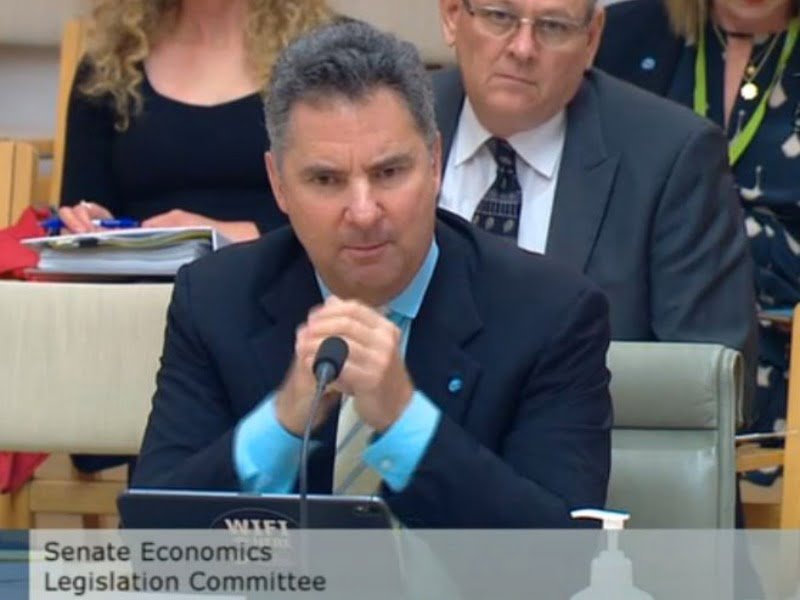CSIRO has defended its use of global management consultants to guide a program “streamlining” organisational processes and systems around a new strategy, with the agency saying there is no “intent” to use the program to reduce staff numbers.
It follows concerns from the CSIRO staff union that the program would lead to forced redundancies or job cuts, after an email from boss Larry Marshall flagged changes for a “more sustainable” agency last year.
At a Senate Estimates hearing on Thursday, Dr Marshall and colleagues confirmed the agency is well below its staffing cap and is experiencing challenges in recruiting, while a spokesperson told InnovationAus there is no intention to reduce headcount through a recent review partly outsourced to consulting giant McKinsey.

CSIRO last year gave US consulting giant McKinsey $1.2million for assistance with a program of work “to review, simplify and streamline organisational processes and systems” against the agency’s strategy.
The contract triggered concern from the CSIRO Staff Association about job losses stemming from the review, which the union was not consulted on.
The CSIRO Staff Association last week called for a guarantee the review of organisational processes and systems would not lead to any forced redundancies or job cuts.
“CSIRO employees have raised their concerns with the Staff Association given the ongoing restructures and redundancies that have affected CSIRO workers during a very difficult 2020 and 2021,” CSIRO Staff Association secretary Susan Tonks said.
A CSIRO spokesperson told InnovationAus that McKinsey had been engaged for “initial input” on the CSIRO-led program because of the consultancy’s experience, but the program was not an organisational review nor was it looking at job cuts.
“McKinsey is not undertaking an organisational review,” the spokesperson said.
“The intent of this program is not to reduce our workforce, but to make our systems and processes easier to use, enhance agility and enable greater collaboration.”
The spokesperson said the McKinsey work was separate from CSIRO’s Annual Performance and Investment Review process, which is used to inform the agency’s strategic investments, most recently in December.
“Last December a number of large collaborative programs were endorsed for funding as part of our 21-22 review process, including new Future Science Platforms, digitisation of our National Collections, support for our Space Program and investment in research to support new diagnostic technologies,” the spokesperson said.
“CSIRO continuously reviews our capabilities as part of our workforce planning, to ensure alignment with our strategy and science priorities.”
At Senate Estimates on Thursday the CSIRO officials said the agency had increased its full time equivalent headcount by around 80 in the second half of last year but it is still nearly 400 staff below its current Average Staffing Level cap of 5414.
Dr Marshall said CSIRO doesn’t necessarily aim to fill its staffing cap but adapts resources to current challenges.
“We tend to shape the organisation with the skills that we need to suit whatever challenges we think Australia is going to face, and get the scientific expertise that we need,” he said.
CSIRO’s current focus on artificial intelligence, advanced manufacturing and quantum technologies mean this can be challenging in a competitive job market and is not helped by the pandemic.
“Of course, recruiting has been incredibly difficult during COVID. We’re probably a little bit behind where we would otherwise be,” Dr Marshall said.
“But we don’t we don’t try to get to the max of our ASL cap. We try to choose the talent that we ned or the problems that need to be solved.”
Do you know more? Contact James Riley via Email.

